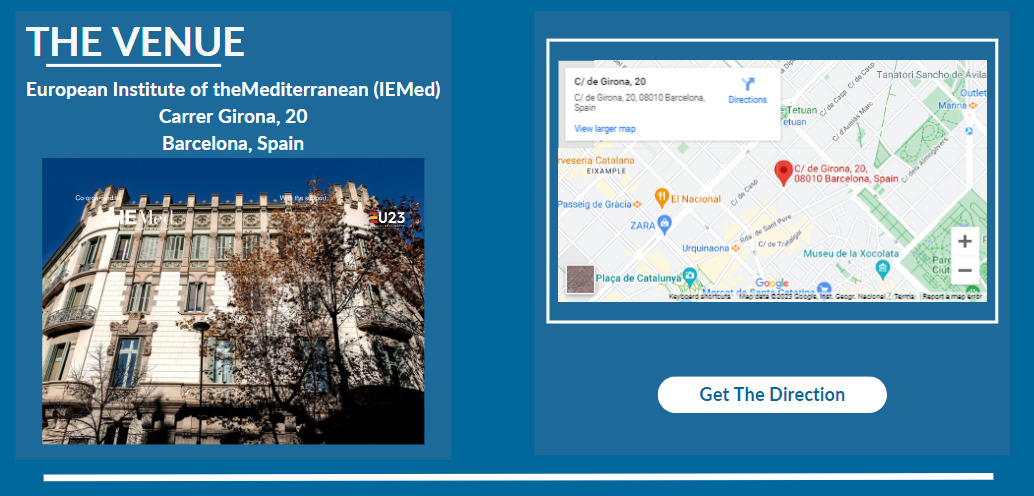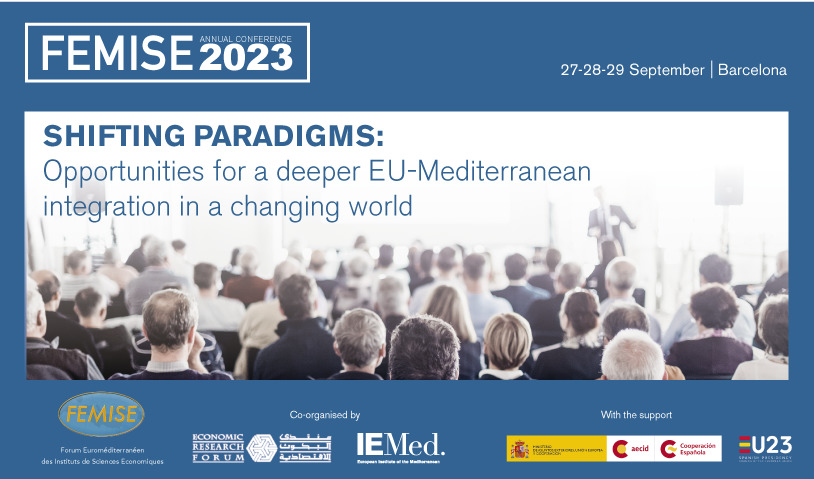
| Register | Download Agenda | Download Concept Note |
Shifting Paradigms: Opportunities For a Deeper Euro-Mediterranean Integration In a Changing World
Overview
The global economy is undergoing major geopolitical and economic paradigm shifts. In addition to its profound political ramifications, the war on Ukraine has exacted major economic and social development costs on the global economy, especially for a developing world that is still reeling from the impact of the COVID-19 pandemic. Furthermore, climate change’s impacts are intensifying and threatening the environment and societies with the poorest paying the heaviest price.
Within this context, the Euro-Mediterranean region has an important role to play as a major centre of global trade, connecting three continents of the world. In fact, while representing only 1% of the world’s waters, the Mediterranean Sea generates around 15% of global maritime traffic and 20% of related economic value, making it a fundamental global economic and social crossroads. It has become even more central today following the discovery of giant natural gas fields in the Eastern Mediterranean.
As such, as the countries in the Euro-Mediterranean region are facing their new and existing challenges and resetting their priorities, new opportunities are emerging towards deeper Euro-Mediterranean integration. For the Southern Mediterranean countries (SMC), the consequences of climate change, slow economic growth and increasing youth unemployment are particularly challenging. Nonetheless, there is a huge potential for the SMCs to exploit their comparative advantages to position themselves to meet economic, climate and human development challenges, while developing and strengthening a robust reciprocal, self-reinforcing, win-win partnership with the EU. Naturally, the SMCs’ youth will need to be the centrepiece of such a strategy and should be amongst the main beneficiaries of the envisaged deepening cross- Mediterranean integration.
Hence, as global geopolitics is shifting, the Euro-Mediterranean relations could be on the threshold of a new era where the two shores are working closer together to build a more resilient and sustainable region. The present common challenges in the region demand such integration and cooperation between North and South.
Objectives
- Bring forward Euro-Mediterranean region issues and explore how to turn challenges into opportunities for a deeper and closer partnership.
- Exchange on how to build a Euro-Mediterranean region that is better integrated and resilient to shocks while putting its young population at the heart of this partnership to allow them to play their role as the Mediterranean Change-Makers.
- Explore ways through which this deeper integration between the EU and SMCs, notably enhanced trade and investments, could lead to better opportunities for the youth while contributing to the Regional Team Europe Initiative on “Jobs through Trade and Investment in the Southern Neighborhood”
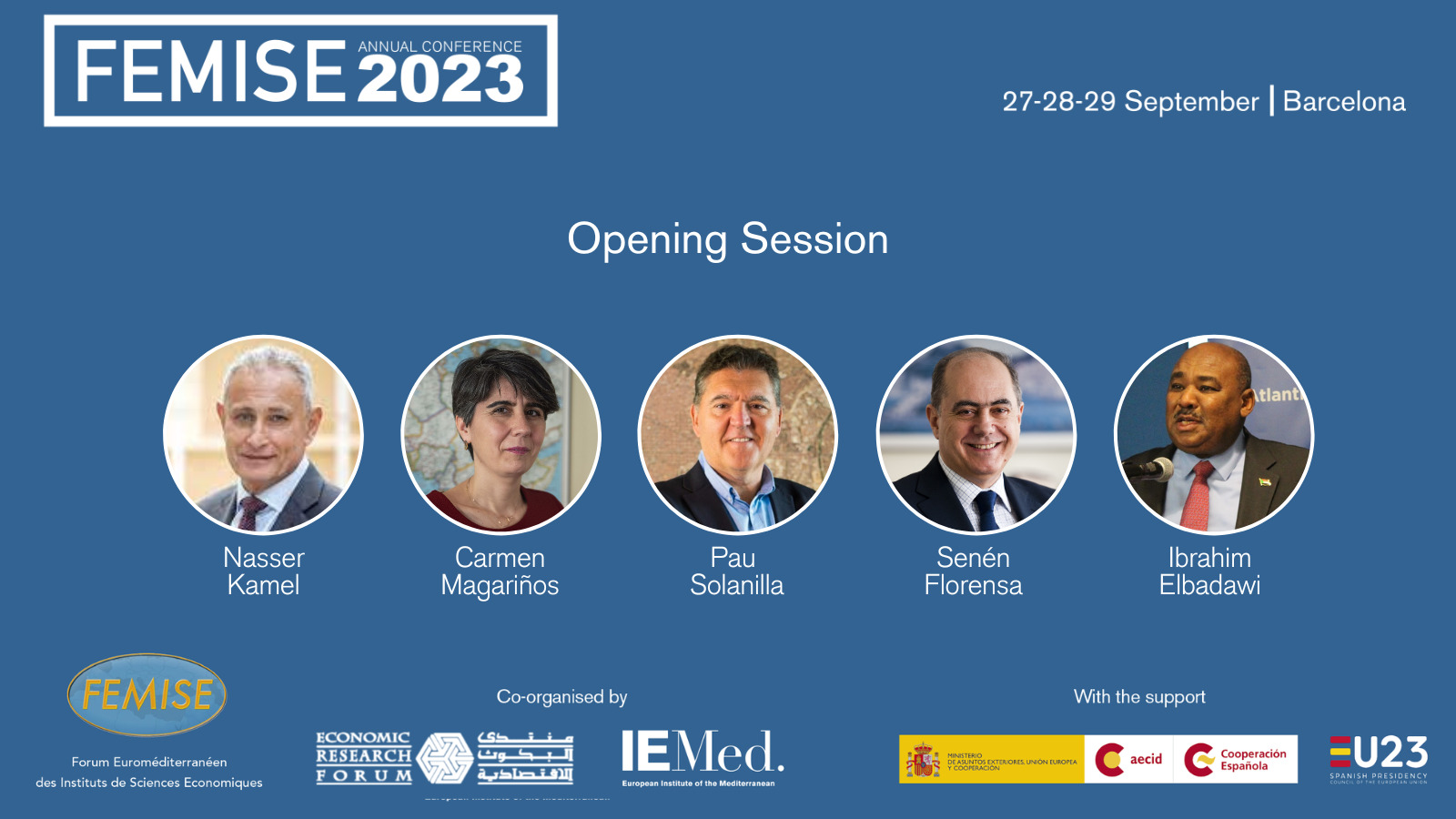
Plenary Session 1 – Towards Greater Euro-Mediterranean Regional Integration: Rebalancing the Geopolitical Landscape with Economic Opportunities
The Mediterranean region is witnessing a new era of changing geopolitical landscape.Given the central role that this region is playing in global trade, economic and social development, it will be key to enhance its integration to secure its place within the global trends while meeting common challenges.

Plenary Session 2 – A Better Integrated Euro-Mediterranean Region to Meet Common Challenges: Enhancing the Region’s Resilience Through Regional Value Chains
Following the recent disruptions in the global supply chains due to the COVID-19 pandemic and the war in Ukraine, the idea of near-shoring gained momentum in the EuroMediterranean region. This represents an opportunity for both shores as it would not only enhance intra-regional trade but will open new opportunities for cooperation on issues such as energy and food while reaching out further to SMCs’ neighbours, including Africa.
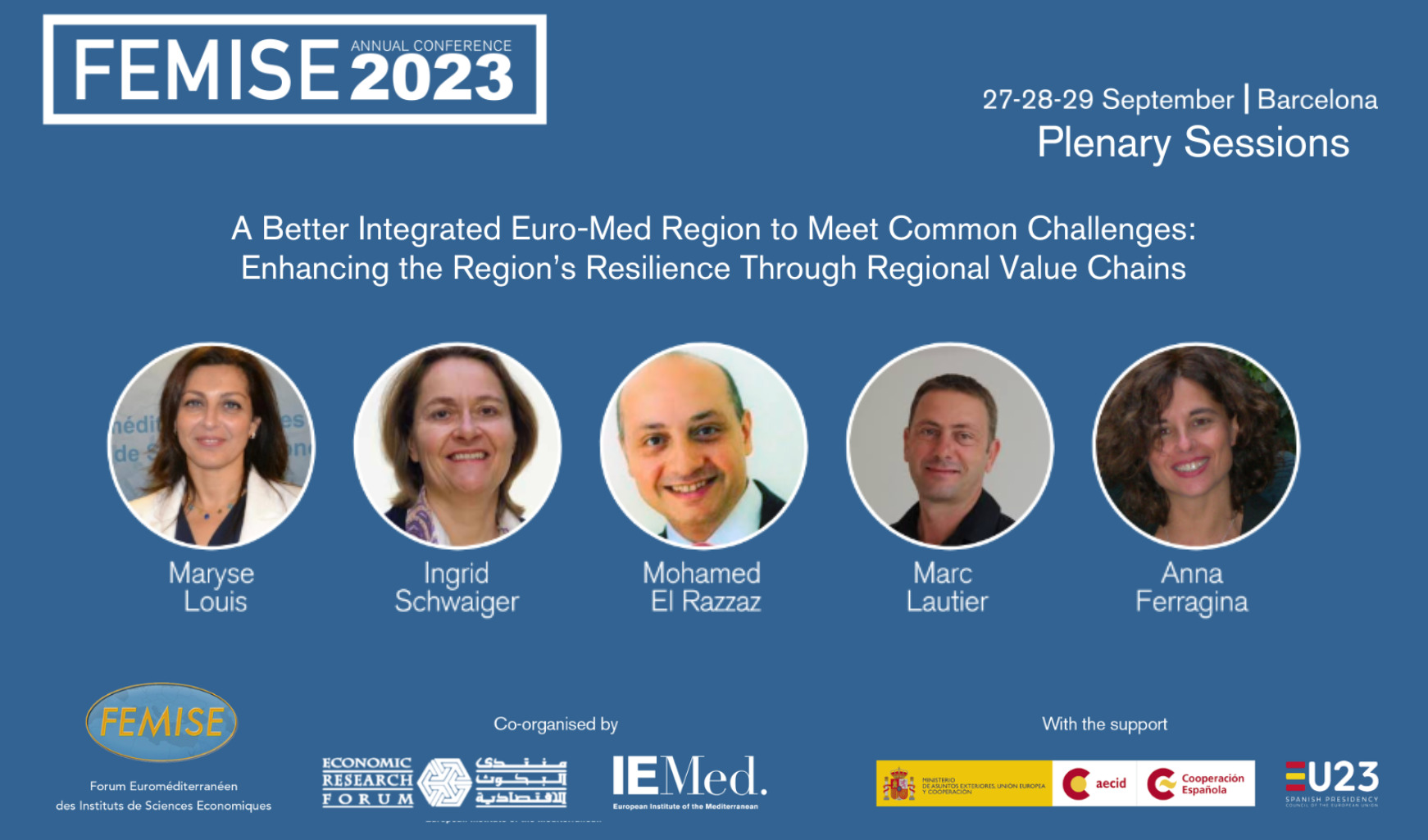
Plenary Session 3 – Towards a Green Transition of the EuroMediterranean Region: Challenges and Opportunities on the Way to Resilient Net-Zero Economies
Putting the green transition at the heart of the Euromed partnership, while finding solutions to sustainability challenges will help the region progress in achieving its goals in terms of resilience, prosperity, and development. While a number of opportunities arise in the region, especially with regard to clean energy production, challenges call for greater cooperation and integration to mobilise investments, built sustainable infrastructure, transfer knowledge and technology, create decent jobs, and green the productive tissue.
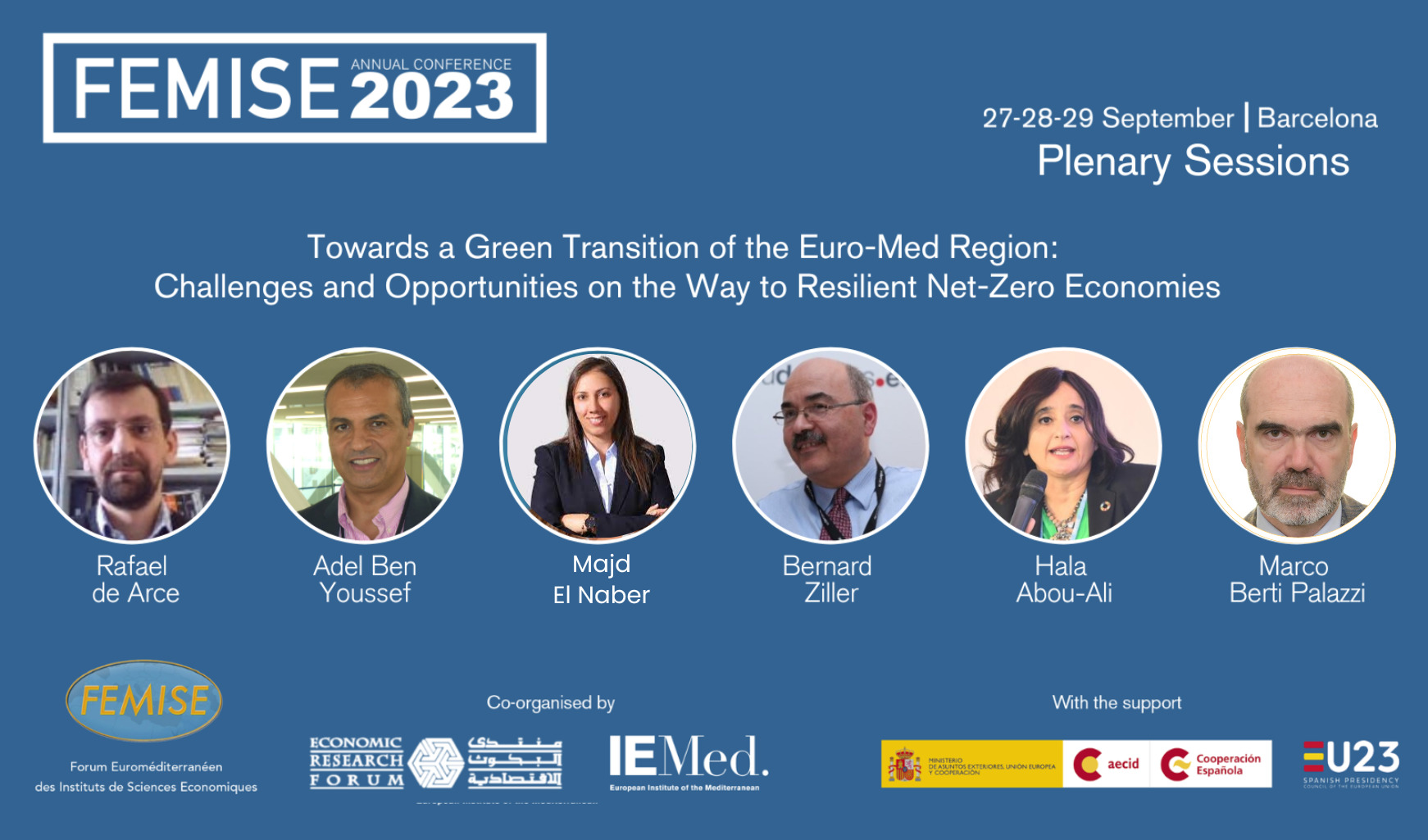
Plenary Session 4 – Towards a Youth-Driven Euro-Mediterranean Region: Policies to Boost Training, Entrepreneurship, and Innovation
The Euro-Mediterranean region is home to the youngest population in the world. While youth can be among the most vulnerable, they are also the most creative and innovative and they aspire for a better future for their region. They deserve to be the main beneficiaries of a deepened regional integration with better education, job, and mobility opportunities. Unleashing the potential of the Mediterranean youth can only be achieved by providing them with the needed support in terms of training, access to finance, as well as the tools and knowledge to develop their entrepreneurship activities in innovative and sustainable sectors

In addition to the 4 plenary sessions, the FEMISE annual conference will give the floor to EU-Med researchers to present the results of their research addressing the theme of the conference in 4 thematic sessions. The 12 papers that will be presented were selected from among 50 submitted papers following a call for papers. The selected papers are believed to bring a value added, new ideas and approaches and relevant recommendations with regards to EU-Med integration.
The thematic sessions will be entitled as follows:
 |
 |
Thematic 1:Financial Inclusion and GVC Integration in the Euro-Mediterranean Region
Thematic 2:Building a More Integrated Euro-Mediterranean Region: Trade, Remittances and Skills’ Mobility
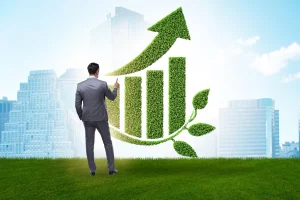 |
 |
Thematic 3: Economics of the Euro-Mediterranean Green Transition
Thematic 4: Policies Empowering the Youth to Deliver Sustainable Development in the Euro-Mediterranean Region
| Register | Download Agenda | Download Concept Note |


